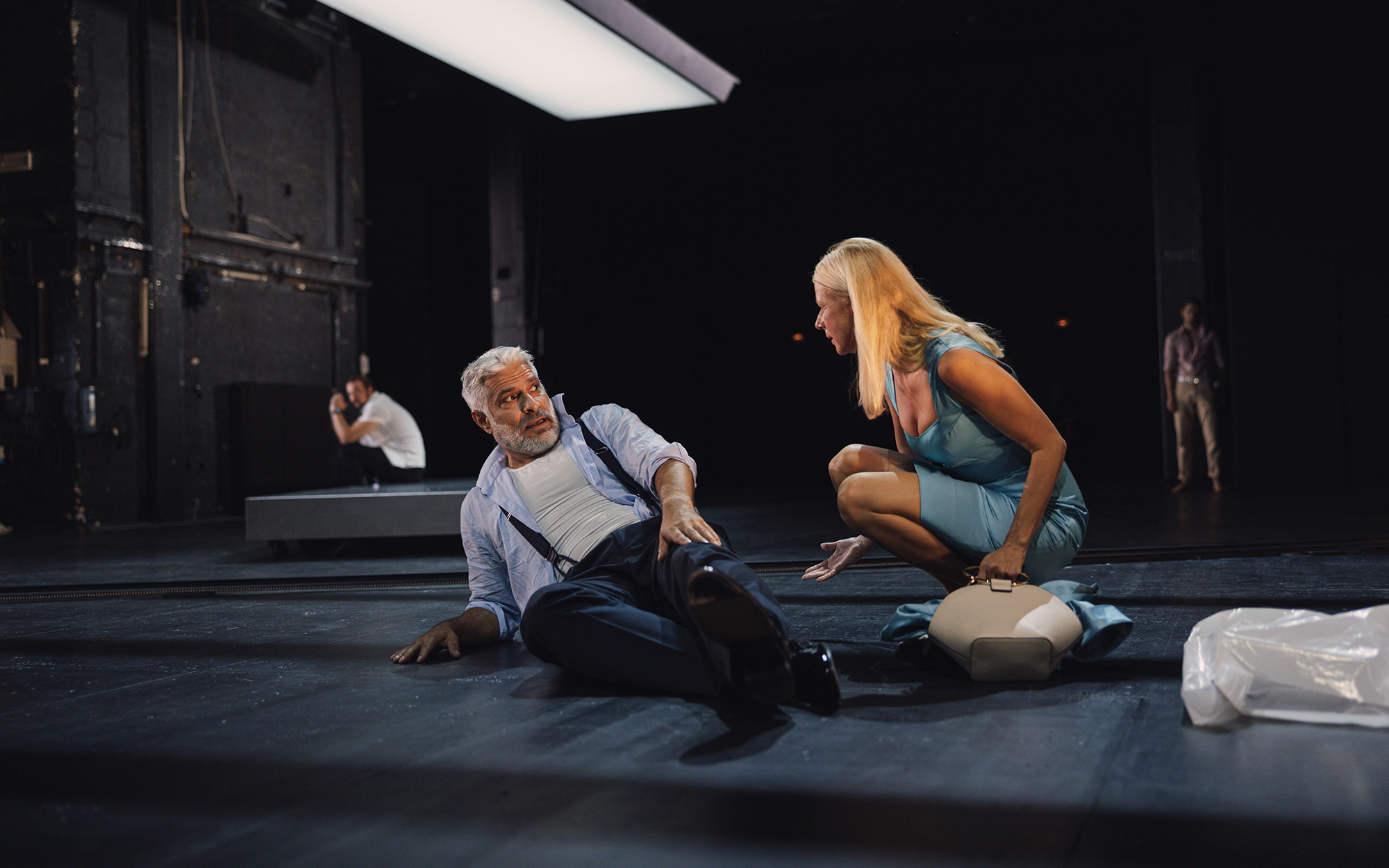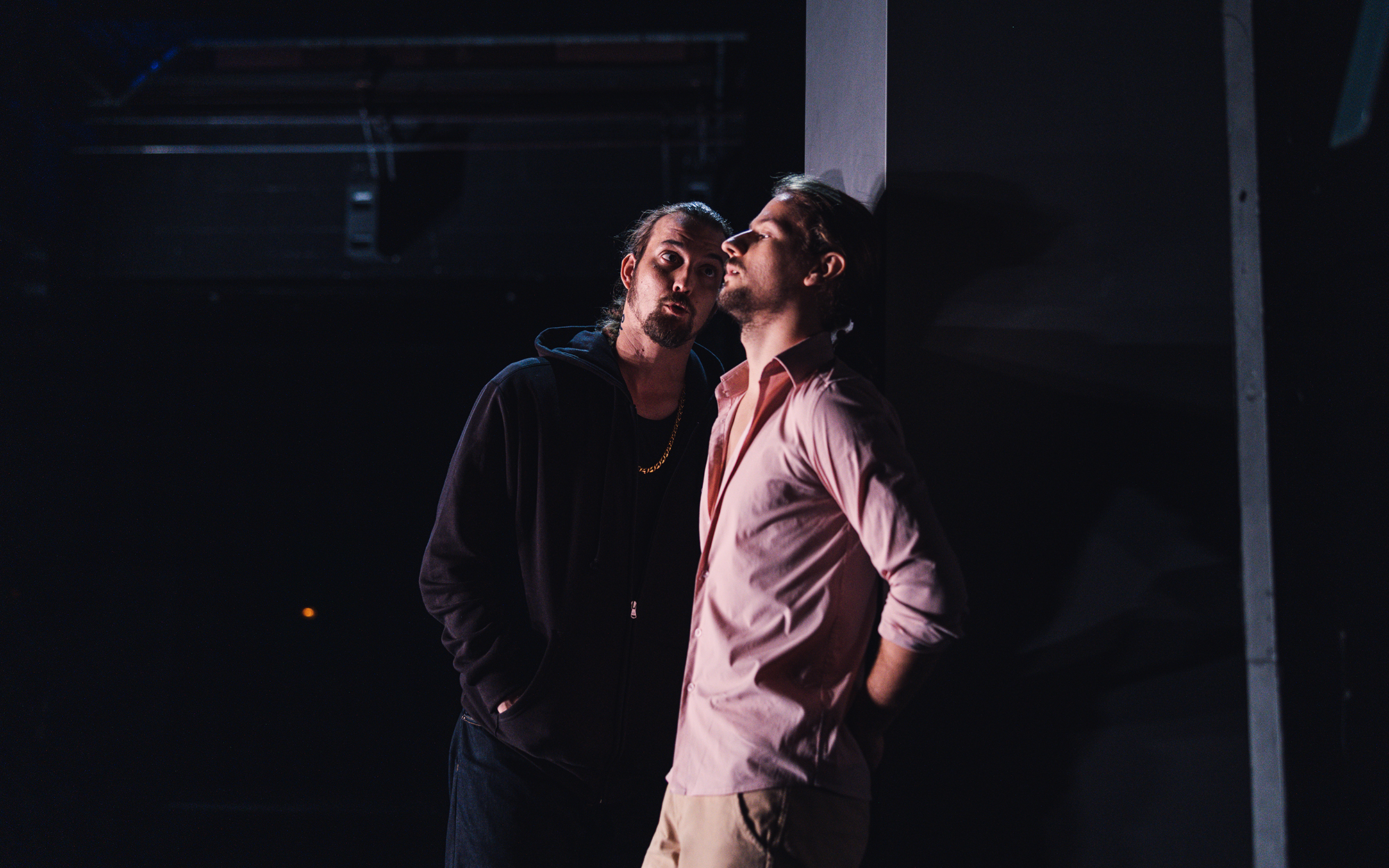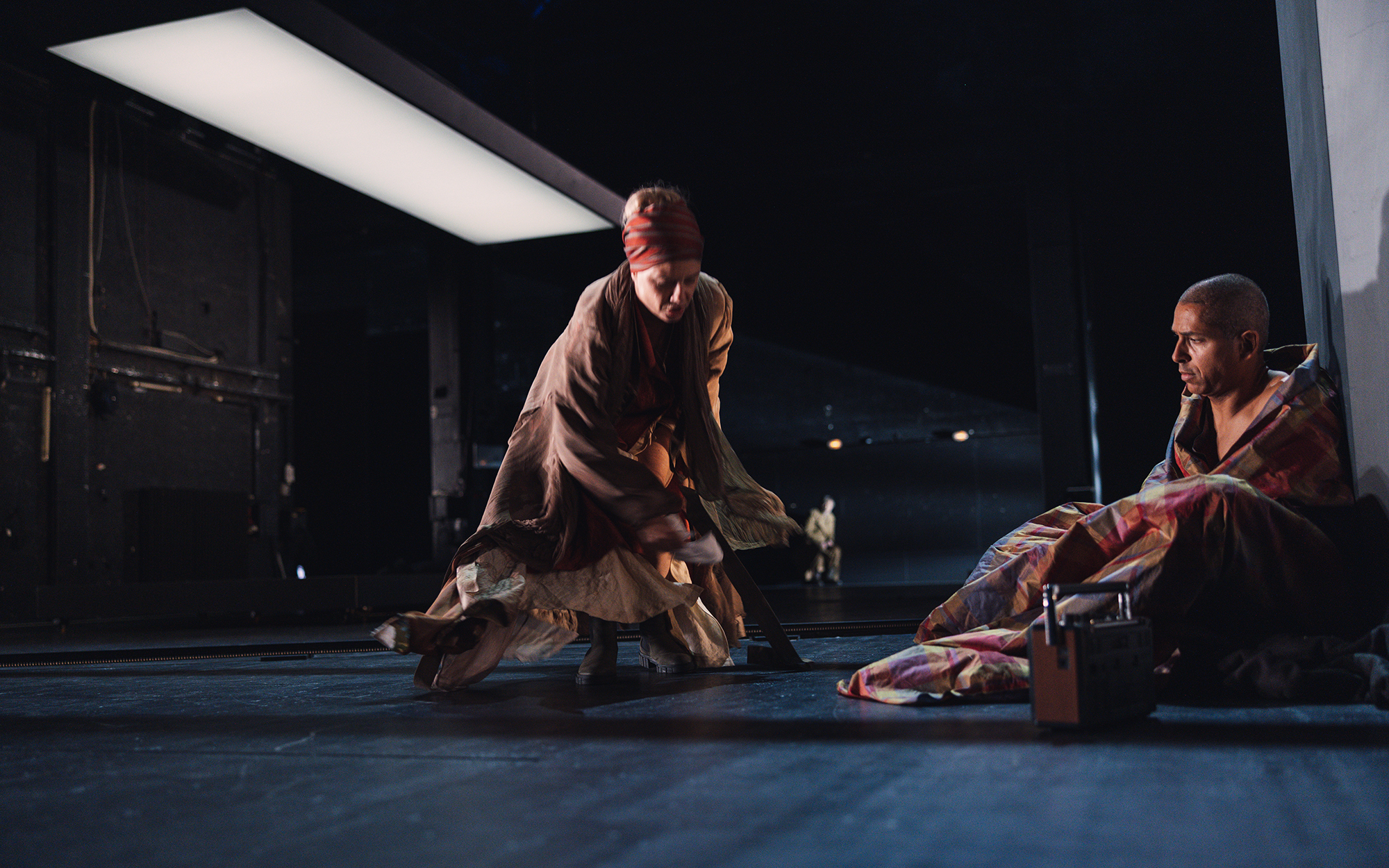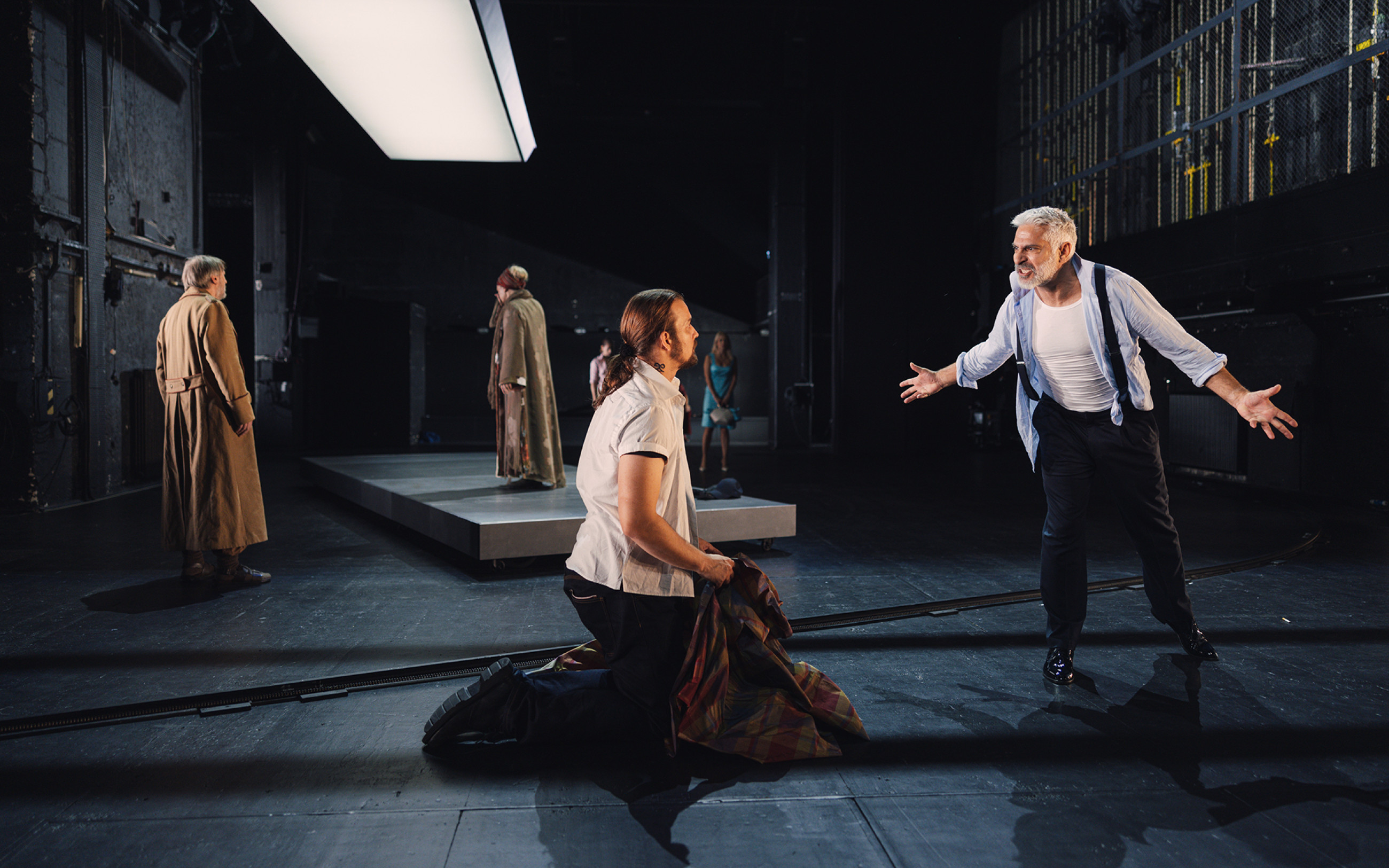Bernard-Marie Koltès
West Pier
In an abandoned quarter of an unnamed metropolitan city in the West, there is a neglected hangar in a former port.
Once it used to be a busy and bustling neighbourhood with merchants and craftsmen doing business, but life has long since moved across the river, where the lights of the new harbour now shine. Near the hangar, only a colourful group of people linger, stuck on the fringes of society
Quai ouest, 1983
Black comedy
Premiere: 12. October 2023
Performance length is 2 hours and 0 minutes and has no pause.
Creators
Translator
Aleš Berger
Director
Janusz Kica
Dramaturg
Petra Pogorevc
Set designer
Branko Hojnik
Costume designer
Bjanka Adžić Ursulov
Composer
Darja Hlavka Godina
Language consultant
Maja Cerar
Lighting designer
Andrej Koležnik
Sound designer
Sašo Dragaš
Assistant to dramaturg
Manca Lipoglavšek
Assistant to set designer
Nastja Frey Gorše
Actors
Maurice Koch
Sebastian Cavazza
Matej Puc
Monique Pons
Tjaša Železnik
Cécile
Jana Zupančič
Rodolfe
Alojz Svete k. g.
Charles
Filip Samobor
Claire
Klara Kuk k. g.
Fak
Filip Štepec k. g.
Abad
Joseph Nzobandora – Jose

When a high-ranking financial official Koch and his colleague Monique arrive one night, two completely different worlds inevitably collide. Koch is about to take his own life, burdened by unexplained fraudulent financial transactions. He chooses to commit suicide in an abandoned harbour, where he has childhood memories. But before he stuffs a rock in his trouser pocket and disappears into the
river, he is confronted by a few individuals who thwart his intentions...
Bernard-Marie Koltès conceives his characters as tireless negotiators, who repeatedly engage each other in scenes of exchange, trade and bargaining.
Although they are mysterious, obscure and difficult to define, each in their own way, their inner motives, whether material or erotic, are always of a practical nature. Their language, which leaps from the sparkling exchange of replicas to the long poetic monologues, is permeated with experience, radiating both madness and wisdom.


On the one hand, West Pier adheres to the principles of realistic drama, on the other hand, it establishes a rather abstract vision of the world, and draws its inspiration from the writings of Samuel Beckett. The abandoned hangar is at once a real and a magical space, and the events in and around it are becoming increasingly multidimensional. Koltès’ play, which is exactly 40 years old, about the collision of the upper and lower classes, gradually evolves into an evocative metaphor of the post-catastrophic world and is marked, without exaggeration, as visionary.


